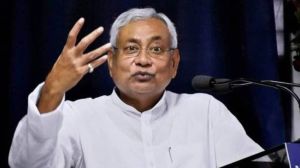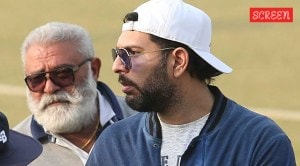US sees holes in Iraq report
US and UN diplomats have reached a preliminary conclusion that Iraq’s declaration of its weapons program failed to account for all of i...

US and UN diplomats have reached a preliminary conclusion that Iraq’s declaration of its weapons program failed to account for all of its chemical and biological agents, said US officials and UN diplomats.
The sources said an early review of the 12,000-page declaration indicated that the document appeared to fall short of what was required from Iraq under a UN resolution.
|
It’s Iran’s turn now
|
|
|
Washington: The US believes Iran’s nuclear weapons programme has taken a disquieting move forward with the building of two large nuclear facilities, US officials said on Thursday. The officials, who spoke on condition of anonymity, said a nuclear facility near the Iranian town of Natanz, and one near the town of Arak, were seen in commercial satellite photographs taken in September. Inspectors for the International Atomic Energy Agency (IAEA) have sought access to the two facilities but have yet to obtain it. —Reuters |
In addition to failing to account for chemical and biological agents missing when UN inspectors left Iraq in 1998, the document also failed to answer why Iraq has sought nuclear materials and technology in recent years, the sources said. They cited as examples Iraq’s failure to explain what happened to 550 shells of mustard gas, and another 150 bombs filled with biological agents, that the UN could not account for in the late 1990s.
‘‘There doesn’t seem to be an awful lot in there that’s new. And a hell of a lot of it seems much the same in a 1996 declaration when Iraq gave a full declaration,’’ said a UN diplomat.
The US, which seeks to oust Iraqi President Saddam Hussein, could try to use any perceived violation of the Security Council resolution — such as an incomplete weapons declaration — as a justification for war.
Washington insists Baghdad has continued to pursue weapons of mass destruction but Iraq denies this. UN chief weapons inspector Hans Blix is scheduled to give the Security Council his preliminary analysis on Thursday and is expected to say there were still discrepancies and unanswered questions. He may go back to Iraq and ask officials there to answer them.
Washington next week is expected to declare the document constitutes a ‘‘material breach’’ of the UN resolution, but not use this as an immediate cause for war, diplomats said. Other council members will want to hear from the inspectors before they accept the US analysis, they said. The Bush administration would not comment on the status of the US and UN review of the arms declaration, which Baghdad turned over to the UN last Saturday.
The US sentiment was that Washington wants to let the UN inspections process have a chance to succeed and give Iraqi President Saddam Hussein a chance to disarm.
Hostile US rhetoric was tamped down and officials emphasized they wanted to consult with other members of the UN Security Council and hear the assessment of chief UN weapons inspector Hans Blix.
Military preparations continued, however, in case President George W. Bush concludes that Baghdad is still resisting attempts to dismantle any banned weapons programs it has and concludes military action is needed to achieve that.
White House spokesman Ari Fleischer would give no preliminary review of the Iraqi document, saying Bush would have something to say after a ‘‘thoughtful, careful review’’ of the lengthy document is completed. (Reuters)





- 0114 hours ago
- 0214 hours ago
- 0314 hours ago
- 0414 hours ago
- 054 hours ago


























